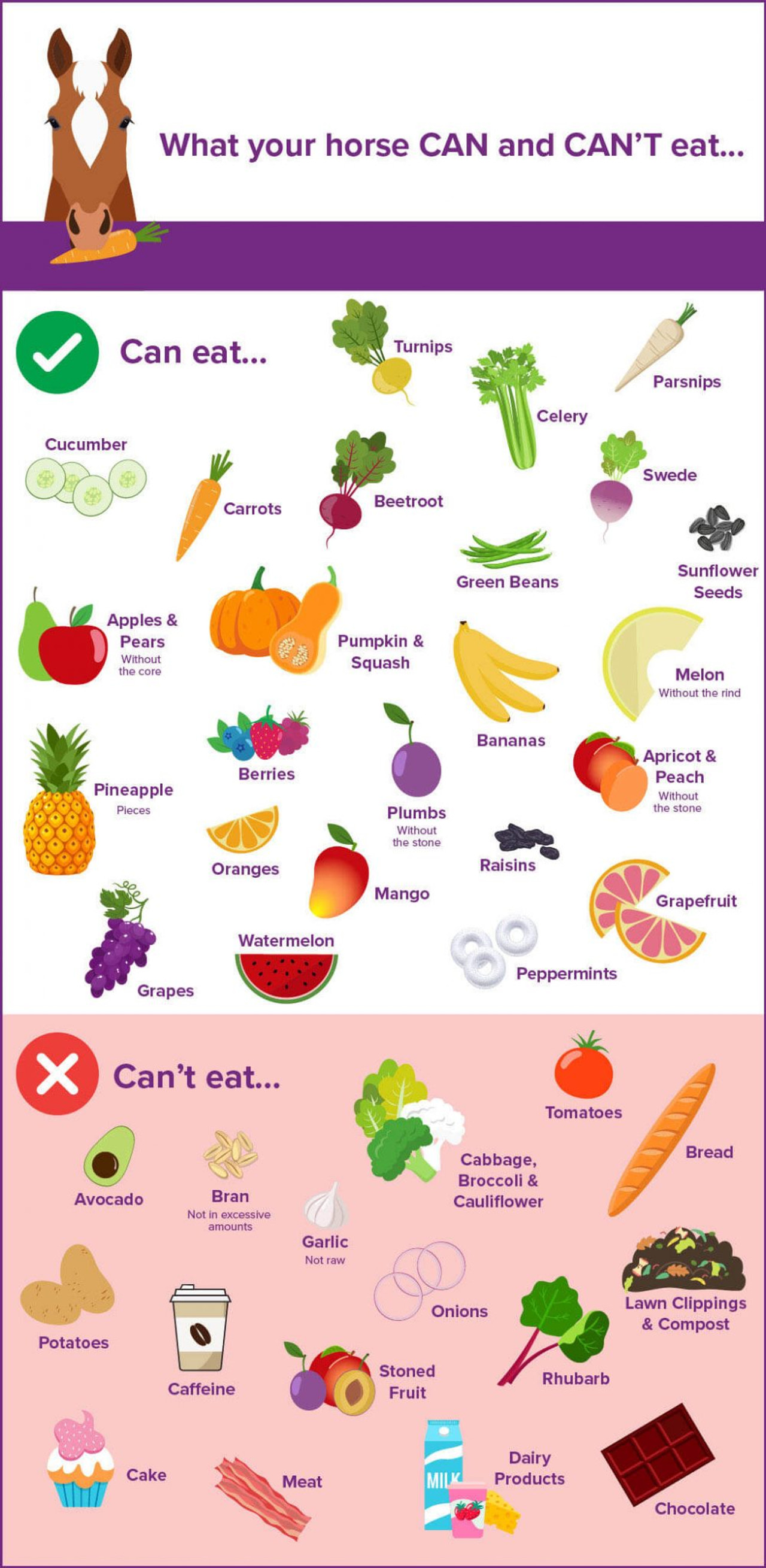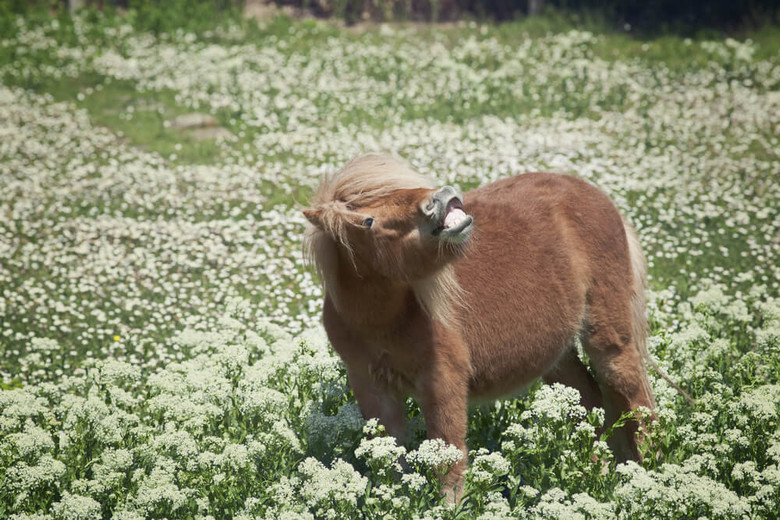Horse Allergies - Causes, Treatment & Advice
Posted by Country And Stable US on 9th Mar 2018
Horse Allergies - Causes Treatment & Advice
If you suffer from any allergies then you’ll know just how annoying, and sometimes very serious, they can be. Well you’re not the only one who can suffer from allergies - your horse can too!
Like in humans, equine allergies can also range from the mildly irritating to the potentially fatal. It’s essential you know what to look out for and what to do if your horse does have an allergy.
Allergies aren’t generally curable, so it’s all about managing them to ensure your horse has the best quality of life possible. Learn about horse allergies - causes, treatment & advice.
What causes allergies in horses?
There are generally five main things that cause allergies in horses:
- Insect bites
- Food allergies
- Contact allergies
- Airborne allergens
- Medications and vaccines
We’ll take a closer look at each of these to learn what signs to be aware of and how to treat them…
Insect bites
Insect bites, parasites and other pesky bugs and critters are one of the most common causes of equine allergies. The actual cause of these kinds of allergies is a hypersensitivity to the saliva produced by the insects when they bite the horse.
A common condition caused by insect bites is sweet itch (also known as summer itch or equine insect hypersensitivity). This comes from midges, but there are a whole host of other insects, such as mosquitoes, fleas, mites and horse flies, that can cause allergies to rear their ugly head.
Signs
The most common sign of insect bites is itchiness. This will cause your horse to try and scratch in some way, and can lead to bald spots, inflammation, redness and sore looking skin. You may notice this in places where flies and insects tend to be found, such as the base of the tail, around the eyes and mouth and root of the mane. Although they can occur anywhere. Read about horse allergies. Causes, treatment & advice
Treatment and prevention
You can use a fly mask or fly sheet to try and limit the contact your horse has with insects. Also use fly spray to try and keep them away (although make sure they aren’t allergic to that as well!). You can also try turning your horse out at different times of the day when insect may not be as active. If insects are getting into the stable, you can try putting up mesh screens to keep them out.
If your horse is already suffering from insect bites, then ointments and antihistamines can help reduce itching, swelling and soreness. However, always check with a vet for their advice and before you use anything for the first time.
Food allergies
Not quite as common are food allergies. However, it’s still important to be aware that your horse may not get on with some of the food in their diet. They can be allergic to natural foods as well processed foods that may contain extra additives and preservatives.
Signs
There can be many signs of food allergies, and it really depends on the food that’s been eaten. Hives is a fairly common sign, but if your horse has eaten a plant that it’s allergic to then you can see a range of signs, some being very serious such as paralysis, organ failure and even death.
Prevention and treatment
It’s always important to keep a close eye on how your horse reacts to what they’re being fed. If you notice your horse has reacted badly after being fed or they’ve eaten something they shouldn’t then you need to try and work out what they offending item was and cut it from their diet and make sure they don’t have any contact with it.
Take a look at our infographic on what horses can and can’t eat.

Contact Allergies
Contact reactions refer to anything causing an allergic reaction when it comes into contact with your horse’s skin. This could be anything from saddle pads to cleaning products.
Signs
With contact allergies you’ll notice the usual signs of allergies - itching, hair loss, biting, etc - but any visible signs on the skin will often be localised to the area of contact with the skin.
Prevention and treatment
Quite simply, the best thing to do with contact allergies is to pinpoint the cause of the allergic reaction and stop using it. If there is localised redness or soreness, then it should be reasonably simple to work out what has caused it.
It might not be the product as a whole that has caused the reaction. It could just be one of the materials or ingredients used. You can buy hypoallergenic products or those for horses with sensitive skin that can often help. Always speak with your vet if you can’t identify the source of the allergen.
You can use ointments and other medicines to help make life more comfortable for your horse if they are suffering with a contact reaction.
Airborne Allergens
Airborne allergens refers to anything in the air that can irritate your horse, such as dust and pollen.
Signs
Airborne allergens can cause either skin or respiratory problems. Skin reactions may show in the same way as other allergies, with itching, redness and soreness. While respiratory reactions can include irregular breathing, coughing, wheezing and nasal drainage. Eye problems and lethargy can also be a sign of an allergic reaction caused by an airborne agent.
Prevention and treatment
Obviously it’s not possible to completely shield your horse from airborne allergens - unless you keep them indoors 24/7!
If you think your horse is allergic to an airborne agent then you’re definitely going to need to speak with your vet. They may well suggest a skin test if it’s a skin reaction you’re dealing with. This can help identify the cause of the allergy, so you can then take necessary steps. Depending on the allergen, your vet may suggest vaccines or certain medications.
In order to try and prevent such a reaction as much as you can, you can keep the horse away from areas that may be particularly troublesome. For example, if your horse is allergic to pollen, they shouldn’t be turned out for as long on days with a high pollen count. Again, items like fly masks and fly blankets can help keep airborne allergens at bay.
You should also ensure that any feed you give your horse is fresh, clean and as free as possible from dust and mould, both of which can irritate a horse’s respiratory and digestive system.
Medications and Vaccines
Medications and vaccines are usually used to combat allergies, but in some cases your horse may be allergic to the medication itself, although this is usually quite rare.
Signs
Signs of allergic reactions from medication vary depending multiple factors, including dosage, type of medication, how it’s administered, etc. If it’s an injection, then you may notice redness and swelling, for instance. But the medicine itself could cause a multitude of problems from anaphylactic shock to convulsions, and more.
Prevention and treatment
These kind of reactions are quite rare, but potentially much more serious than other types of allergic reaction. Obviously you should only administer medication on the advise of your vet, so they can run through any potential dangers with you. Once the horse has received the treatment, it’s vital to monitor them closely over the following few hours to see how they respond to it. You should call your vet immediately if they appear to have any adverse reaction.
Having a full medical history of your horse is essential, especially if you have bought it off someone else. Knowing their history helps if they have any particular aversions to certain medications, or if any other horses in the same family do.
We hope that this guide has been of use to use - if you have any more detailed questions about equine allergies, your vet will be able to help you.



